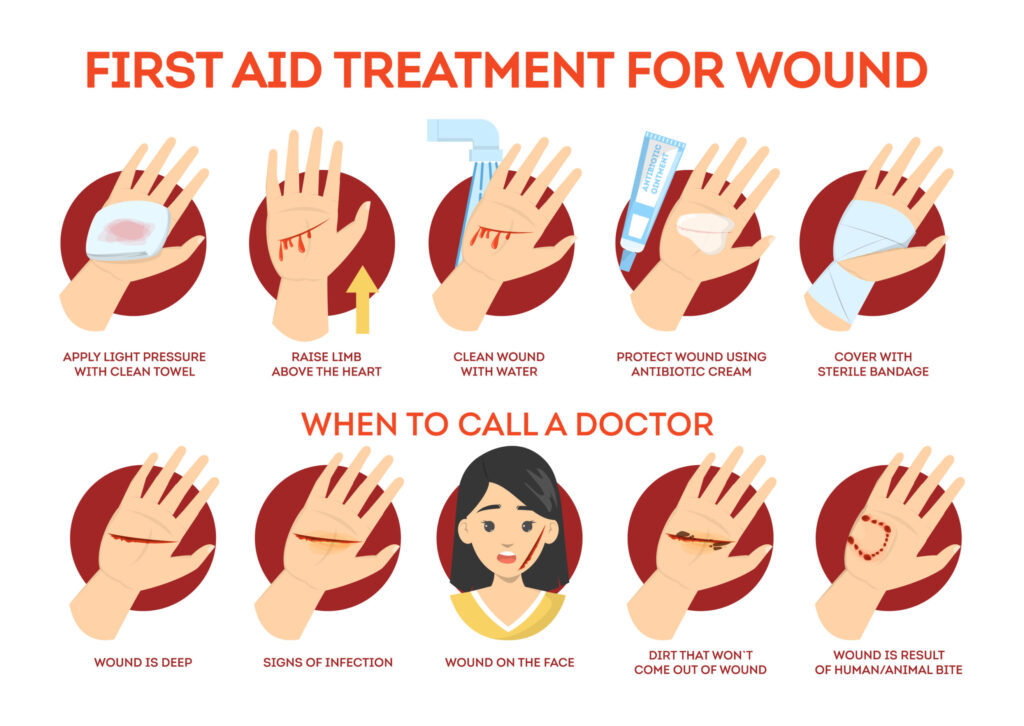Scars usually take about six weeks to fully heal and cover-up that wound. However, in some cases, a scar does not heal fast enough or leaves an ugly mark on your skin as a result of contracting chickenpox as a kid or from an accident. Many people spend thousands of dollars trying to get rid of their scars.
If you have struggled to overcome a recent wound that won’t heal, there is no need to feel alone. Many people have experienced the same thing and have found ways to deal with this issue so they can move forward. Here are 5 tips on how you can deal with your wound not healing:
Change the bandage regularly
When a wound is healing, it is important to keep it clean. Your bandage will get dirty and bacteria will start to grow, which will slow down the healing process. If you notice your bandage is getting dirty, change it right away. If you leave the bandage on longer than 24 hours, it can seal off the wound and trap bacteria inside the body. If the bacteria get inside your body, they can cause infection.
This infection can slow down the healing process and even lead to the formation of scar tissue. To change your bandage, you will need a clean cloth, scissors, and some antiseptic. Cut off the old bandage as close to the skin as possible. Then, apply some antiseptic to your wound and clean it with water. Choose a clean cloth to wrap your wound and apply a new bandage.
Get a proper diagnosis
If your wound does not heal and changes color, shape, or size, it is crucial to get a proper diagnosis. If a wound is healing, your body naturally produces new cells, which gradually replace the damaged ones. In the early stages of healing, the cells are pink and healthy. When the wound has fully healed, the scar is usually white or very light in color.
However, some wounds keep bleeding or produce fluid because they are not healing. When a wound is not healing, it is crucial to get medical help as soon as possible. A wound that is not healing can cause an infection, scarring, or even lead to amputation in extreme cases.
Exercise and build your immune system
When your wound heals, your body produces new cells. When you exercise regularly, your body produces more new cells than when you stay at home. When you exercise, your body releases endorphins, which reduce stress and help you feel happy and satisfied. Regular exercise also strengthens your immune system and helps you stay fit and healthy. When your immune system is strong, your body can fight off infections and keep your wound clean and healthy.
Exercise can help you recover from a wound that doesn’t heal faster and reduce the risk of infection.
Take natural supplements to speed up the healing process
If your wound is not healing, there is a chance that your body is not producing enough new cells. When this happens, your wound might heal slower than normal, and you might have to wait for a longer period. There are natural supplements that can help you overcome this issue. Many supplements can speed up the process of healing, such as vitamin C, collagen, and aloe vera. However, you should not self-diagnose and begin taking multiple supplements without consulting a doctor.
Most doctors will recommend one vitamin C supplement per day, along with a balanced diet that contains enough vitamin C.
See a doctor and ask for help
If you have tried all of the above things, it might be time to see a doctor. Some wounds might be caused by an infection, which can be easily treated with antibiotics. Other wounds might be the result of an underlying condition, such as diabetes or poor circulation. You might not be able to fully heal your wound if you have an underlying condition. However, if you see a doctor at an early stage, they might be able to help you find a solution. If your wound is caused by an infection, they might prescribe you antibiotics. Depending on the severity of your wound, they might refer you to a plastic surgeon or hand surgeon who can perform surgeries to help your wound heal.
Conclusion
A wound that is not healing is a serious issue and requires immediate attention. When a wound does not heal, bacteria can get inside the body, leading to an infection. In cases of serious non-healing wounds, doctors may need to perform surgery to remove the infected tissue. It is important to seek help from a doctor at the first sign of an un-healing wound.


